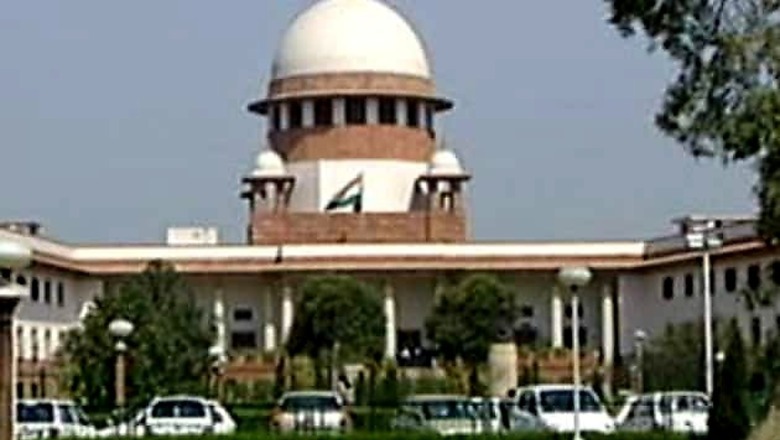
views
New Delhi: Supreme Court on Monday sought a response from the Registrar of the Gujarat High Court on a plea of the state information panel, saying the High Court Rules cannot be allowed to override the provisions of the Right to Information (RTI) Act.
The State Information Commission had moved the apex court against a Gujarat High Court decision that an information sought can be given to a person in accordance with the High Court rules and not under the RTI Act.
A bench of Justices J Chelameswar and Rohinton F Nariman issued notice to the Gujarat High Court and an ex-medical officer on the state Information Commission's plea.
The apex court was hearing a plea by Gujarat Information Commission, filed through advocate Kabir Hathi, against a Gujarat High Court direction that the required information would have to be sought under the Gujarat High Court Rules, 1993 and not the Right to Information Act.
According to the plea, former medical officer Mahendra A Bhatt had filed a RTI application in 2010 seeking certain information along with documents and certified copy.
Later, Gujarat High Court's Public Information Officer informed Bhatt to apply personally or through his advocate on payment of court fees of Rs 3 to the "Deputy Registrar", Decree Department, Gujarat High Court.
"On making such an application, the information would be supplied to him as per Rules 149 to 154 of the Gujarat High Court Rules, 1993.
"It was also informed that in case Bhatt is not a party to the proceedings then the application shall be accompanied by an Affidavit stating the grounds for which the certified copy is required and if he is a party, such affidavit will not be required," the plea said.
Bhatt then filed an appeal against the PIO's reply before the Appellate Authority which was dismissed stating that no certified copy can be provided under RTI Act as it can be obtained under the High Court Rules.
On this, Bhatt approached the Gujarat Information Commission which directed the High Court to give information sought within 20 days under the RTI Act.




















Comments
0 comment